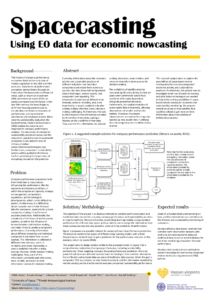The history of evaluating company performance dates back to the 18th and 19th centuries, where the primary focus was on financial performance, evaluated using financial ratios such as return on investment (ROI) and return on assets (ROA). However, in recent years, there has been a shift towards including non-financial measures of performance, such as customer satisfaction and employee morale, and more recently, sustainability evaluation, such as Environmental, Social, and Governance (ESG) analysis, has become increasingly important in company performance analysis.
Despite this, assessing a company’s performance is far from trivial due to various factors that can influence performance, such as the economic and industry conditions in which the company operates, changes in management, competitors, regulations, and technological developments, which can be challenging to predict. Additionally, obtaining accurate and reliable financial data, particularly for private companies, is challenging, which makes accurate predictions difficult.
Moreover, the complexity of the financial and economic systems, as well as the influence of human behavior and decision-making, can also make it hard to predict a company’s performance. Currently, information about different industries and individual companies is estimated from various sources, collected at different time intervals, varies in reliability, and is usually only available after a delay, making informed and timely decision-making challenging. As a result, users of this information are constantly seeking alternative, more reliable, and more timely information sources for decision-making.
However, the availability of satellite data has significantly increased in the last ten years, as commercial actors have started to offer space-based data alongside governmental bodies. Furthermore, the spatial resolution of space-based data is improving, allowing observations of smaller and smaller entities. Additionally, recent advancements in machine learning have opened up new possibilities in utilizing these non-traditional data sources.
To address these challenges, this research project aims to explore the possibilities of space-based remote sensing data for assessing companies’ economic activity and sustainability practices. The project also aims to investigate what kind of machine learning and data fusion technologies are needed to enhance the possibilities of space-based remote sensing for economic and sustainability monitoring. The project proposes several solutions on how satellite data could be utilized to get more on-time information about the activities of individual companies.
The objective of the project is to develop methods to combine earth observation and traditional data sources for assessing company performance and sustainability practices in near real-time. The project aims to utilize deep learning models, using a suitable architecture for different data types, and use data fusion to merge the information from these various sources into one powerful, more on-time prediction of performance.
This project aims to design models for a comprehensive evaluation of company performance, including sustainability performance, using data fusion technologies that combine information from different unstructured data sources and traditional data sources. When the goal is companies’ ESG assessment, no data fusion is needed, and the information provided by remote sensing can be directly used to evaluate companies’ sustainability performance.
The expected results of this project include establishing a fundamental understanding of how satellite observations can contribute to the financial and sustainability monitoring of companies, developing effective data fusion methods that combine earth observation datasets with unstructured socio-economic data and traditional data to derive novel indicators for real-time monitoring of companies’ financial performance, and developing satellite-data-driven methods to extract knowledge for monitoring companies’ environmental/social/governance (ESG) policies.
